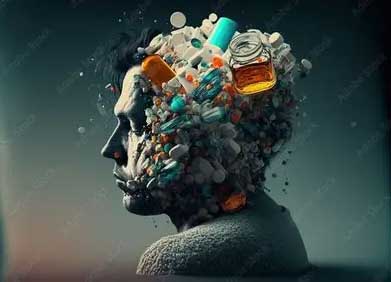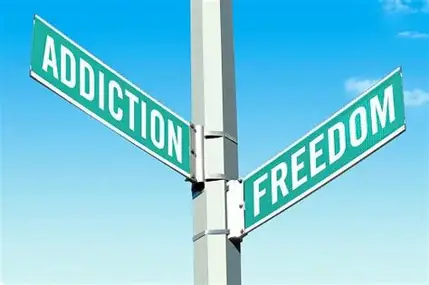
The Brain's Reward Circuit: Why Stopping Isn't So Simple
Quitting drugs or alcohol is not as simple as just deciding to stop. Many people attempt to quit on their own, without support or treatment, only to find themselves falling back into old patterns. This cycle of stopping and relapsing isn’t a failure of willpower or a weakness, it’s the result of deep, complex changes that substances create in the brain. Understanding why it’s so hard to quit substances without treatment means looking closely at the way addiction works and how it rewires your brain.
 Addiction disrupts the brain’s reward system
Addiction disrupts the brain’s reward system
The brain’s award system fuels addiction, especially dopamine. Under normal circumstances, dopamine is released during activities that promote survival and pleasure like eating, social connection, or achieving goals.
Substances like alcohol, opioids, nicotine, and stimulants flood the brain with dopamine, creating intense feelings of pleasure or relief. Over time, your brain begins to associate the substance with a powerful sense of reward, far beyond what natural activities can offer. This rewiring leads to increased cravings for the substance, decreased sensitivity to natural rewards and psychological and physical dependence.
Tolerance and withdrawal make stopping physically difficult
With continued use, the brain reduces its natural dopamine production. This causes tolerance, you need more of the substance to feel the same effect.
When you stop using, your brain’s chemistry becomes imbalanced. This imbalance causes withdrawal symptoms, which can range from uncomfortable to dangerous. These include:
- Anxiety, irritability, and panic
- Nausea, tremors, or cold sweats
- Sleep disruption and exhaustion
- Intense depression or suicidal thoughts
- Cravings that feel overpowering
- With alcohol and in dangerous circumstances: delirium tremens
Addiction weakens the brain’s ability to make healthy decisions
The prefrontal cortex is impacted when using substances, the area of the brain responsible for judgment, self-control, and decision-making. Over time, this part of the brain becomes less active, making it harder to resist urges, think clearly under stress, and prioritize long-term goals over short-term relief.
This is why even the most disciplined people: military members, EMTs, law enforcement-can find themselves acting in ways that don’t line up with who they are or what they believe in.
 Stress and triggers can override willpower
Stress and triggers can override willpower
Triggers can instantly bring back the urge to use. The brain stores these associations in areas linked to survival, which is why the cravings can feel life-or-death, even when you want to stay clean.
When you're trying to "white-knuckle" it on your own, it's much harder to cope with these moments. That’s when many relapses happen, not out of choice, but out of a deeply conditioned survival response.
Real strength is asking for help
The brain can heal. Life can change. It starts with a willingness to step out of the shadows and into support. That’s not weakness, it’s one of the bravest decisions a person can make.
Magnolia Meadows Residential Treatment Facility provides Treatment exclusive for First Responders & Veterans battling Trauma, Mental Health Conditions and Co-Occurring Disorders, creating a healing atmosphere for recovery, and instill a confident hope that better days are ahead.
Reach out to learn more or speak with an admissions specialist.
855-644-7500
[email protected]

